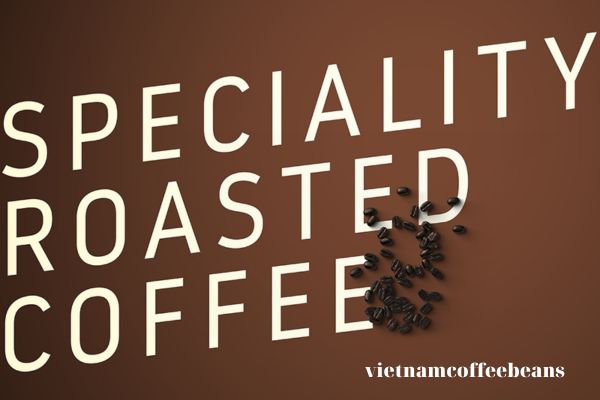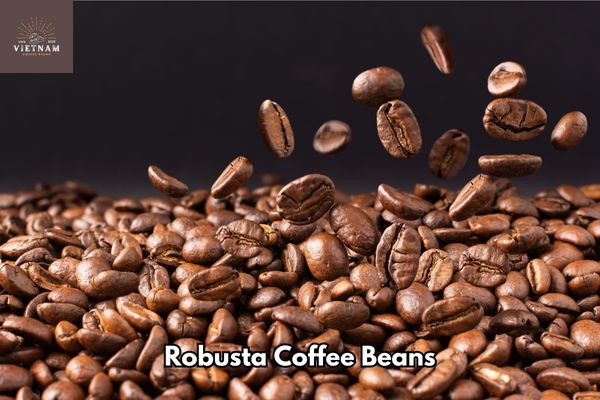
As a coffee lover, I am always on the lookout for new and unique flavors to try. What exactly is it, and what makes it different from other types of coffee?
After doing some research, I discovered that specialty grade coffee is the cream of the crop when it comes to coffee beans.
Specialty grade coffee refers to beans that have been rated by professional tasters as having exceptional flavor profiles and quality.
Only coffees that score 80 points or above on a 100-point scale are considered specialty grade.
This grading system takes into account factors such as bean size, moisture content, and defects.
With this high rating comes a higher price tag, but many enthusiasts believe that the unique taste and quality are worth it.
In this article, we’ll delve deeper into the world of specialty grade coffee to understand what sets it apart from other types of brews.
The Grading System for Specialty Coffee
If you’re a coffee lover, you’ll be glad to know that there’s a whole grading system dedicated to determining the quality of your beloved drink.
Specialty grade coffee is the highest quality coffee available in the market, and it is graded using specific grading standards. The Specialty Coffee Association (SCA) has outlined these standards, which include factors such as bean size, aroma, flavor, aftertaste, acidity, and more.
Specialty coffee quality classification is based on the standards set by the Specialty Coffee Association of America (SCAA) or the Coffee Quality Institute (CQI).
The cupping process is used to evaluate the taste and aroma of specialty grade coffee. This involves analyzing different samples of coffee beans for their unique flavors and characteristics.
Each sample is carefully roasted and brewed before being tasted by professional cuppers who are trained to identify subtle differences in taste and aroma.
To qualify as specialty grade coffee, a sample must score at least 80 points out of 100 on the SCA grading scale. This means that only the best beans make it through this rigorous selection process.
As a result, consumers can be assured that they are getting high-quality coffee when they purchase specialty grade beans or products made from them like espresso or cappuccino.
Specialty grade coffee has become increasingly popular among consumers who value quality over quantity when it comes to their daily cup of joe.
By understanding how this premium product is graded, you can appreciate just how much work goes into producing exceptional tasting coffee – from carefully selecting only the finest beans to utilizing expert brewing techniques that bring out their unique flavors and aromas without compromising on quality or consistency.
Factors Considered in Specialty Coffee Grading
You’ll want to know what factors are considered when grading high-quality coffee beans. Apart from processing, there are many other factors that affect the quality of specialty coffee. These include the altitude at which the coffee is grown, soil type, climate and weather conditions, plant varietals, and farming practices.
A higher altitude creates a slower growth rate for coffee plants resulting in a denser bean with more complexity and flavor. Soil type affects nutrients available to the plant while climate affects the amount of sunlight and rainfall received by coffee trees.
Plant varietals will also affect flavor profiles; some species have been bred specifically for their taste characteristics while others may be better suited to different growing conditions.
Farming practices such as harvesting methods, drying techniques, storage, and transportation can all have an impact on final cup quality. For example, if not dried correctly or stored improperly after harvest, mold can develop on the beans affecting both taste and aroma.
By considering all these factors holistically through sensory evaluation tests like cupping protocols or by using scientific equipment such as refractometers or moisture meters we can determine whether or not a batch qualifies as specialty grade coffee.
The Specialty Coffee Movement
Now let’s dive into what’s happening in the world of high-quality coffee, and how you can be a part of the specialty coffee movement.

Specialty coffee has become more than just a trend, it’s now a culture that people all over the world are embracing. The third wave of coffee culture has brought about an increased focus on quality, sustainability, and transparency throughout the entire supply chain.
To be a part of this movement means to appreciate and support small-scale farmers who are producing unique and exceptional coffees. One way to do this is by seeking out specialty grade coffees from specific regions or farms.
Specialty grade coffees are rigorously evaluated based on factors such as flavor, aroma, acidity, body, and aftertaste. These evaluations ensure that only the highest quality beans make it to market.
Another way to support the specialty coffee movement is by choosing cafes or roasters who prioritize sustainability practices such as direct trade relationships with farmers or implementing eco-friendly packaging solutions.
By supporting businesses who share similar values as yourself, you can help grow the demand for high-quality and ethically sourced coffees while also contributing to positive changes within the industry.
Sustainability and Transparency in Specialty Coffee
As you explore the world of high-quality coffee, it’s important to take a moment to appreciate the efforts being made by farmers and businesses alike in promoting sustainability and transparency throughout every step of the supply chain.
One way this is being achieved is through sourcing ethics. Specialty coffee roasters are dedicated to finding beans from farms that prioritize environmental stewardship, fair labor practices, and community development. This not only promotes ethical behavior but also helps build long-term relationships between farmers and roasters.
Another approach is direct trade. Instead of relying on intermediaries, specialty coffee buyers work directly with farmers to establish mutually beneficial relationships that prioritize quality and sustainability.
This allows for greater transparency in pricing, which can provide economic stability for farming communities while ensuring a higher quality product for consumers. Direct trade also encourages more responsible environmental practices as farmers strive to produce better tasting coffees with less waste.
Overall, the specialty coffee movement has taken great strides towards building a more sustainable and transparent supply chain. Through sourcing ethics and direct trade, we can promote ethical behavior while supporting small-scale producers who rely on their crops as their main source of income.
As consumers become more aware of these efforts, they can make informed choices about what they buy and support companies that are committed to making a positive impact on people and the planet alike.
Enjoying the Unique Flavors of Specialty Coffee

Take a moment to savor the distinct flavors of these carefully crafted brews, as each cup offers a unique experience that can transport you to different parts of the world and connect you to the people and cultures behind them.
Specialty coffee is not just about caffeine, but also about exploring the depth and complexity of flavor profiles. With so many variations in coffee culture and brewing techniques around the world, specialty coffee provides an opportunity for us to explore new discoveries in taste.
As we delve into the world of specialty coffee, it’s important to note that each cup offers something entirely different from the last.
Here are some ways to enjoy this delicious beverage:
- Take time to smell your coffee first before tasting it.
- Sip slowly letting your tongue fully taste all aspects of its flavor profile.
- Experiment with adding milk or sugar until you find what enhances your preferred taste.
Specialty coffee is more than just a morning pick-me-up; it’s an experience that allows us to appreciate the artistry behind every cup.
The unique flavors found in specialty grade coffees make them stand out from other types of beans.
By enjoying and exploring each sip, we become connected with our senses while discovering new cultures through their traditional brewing methods.
So next time you take a sip of specialty grade coffee, take a moment to appreciate all that went into making it so special!
Frequently Asked Questions
Conclusion
So there you have it, folks – specialty grade coffee is a unique and delicious experience that has taken the coffee world by storm.
As someone who’s been involved in the coffee industry for years, I can tell you that there’s truly nothing like enjoying a cup of specialty coffee.
From the grading system to the factors considered, sustainability and transparency initiatives, and unique flavor profiles, there’s a lot to love about specialty coffee.
So why not try something new and indulge in a cup of specialty coffee today? You won’t regret it!






